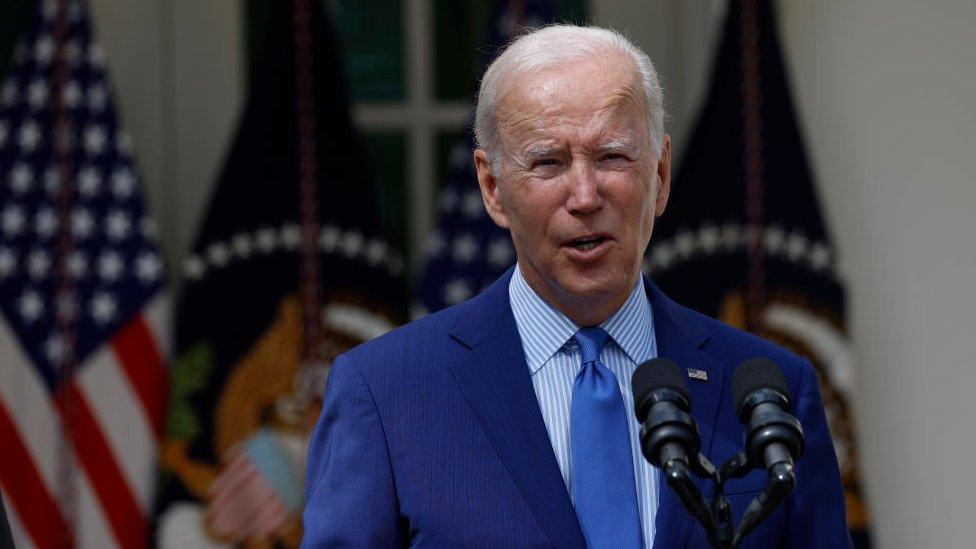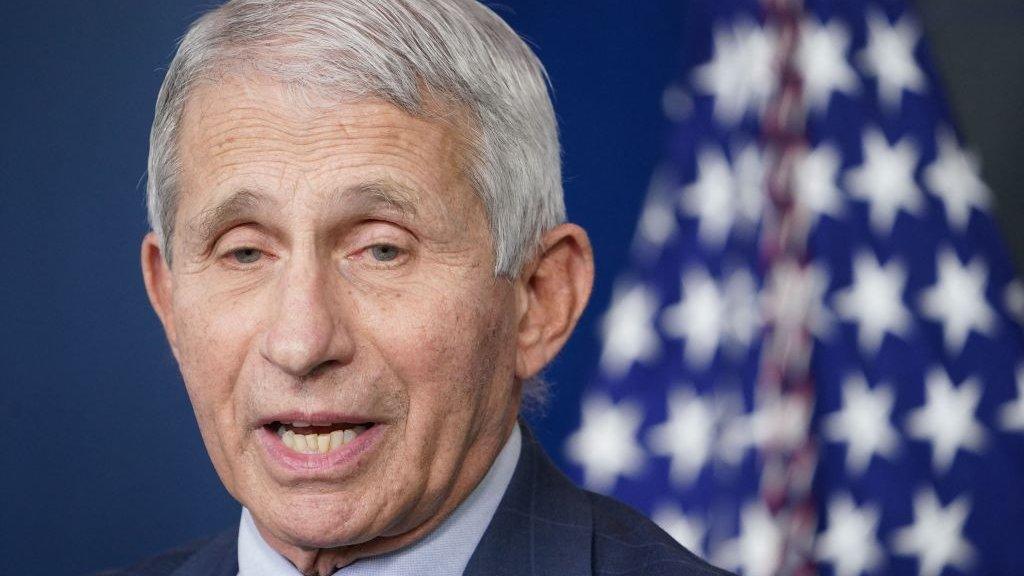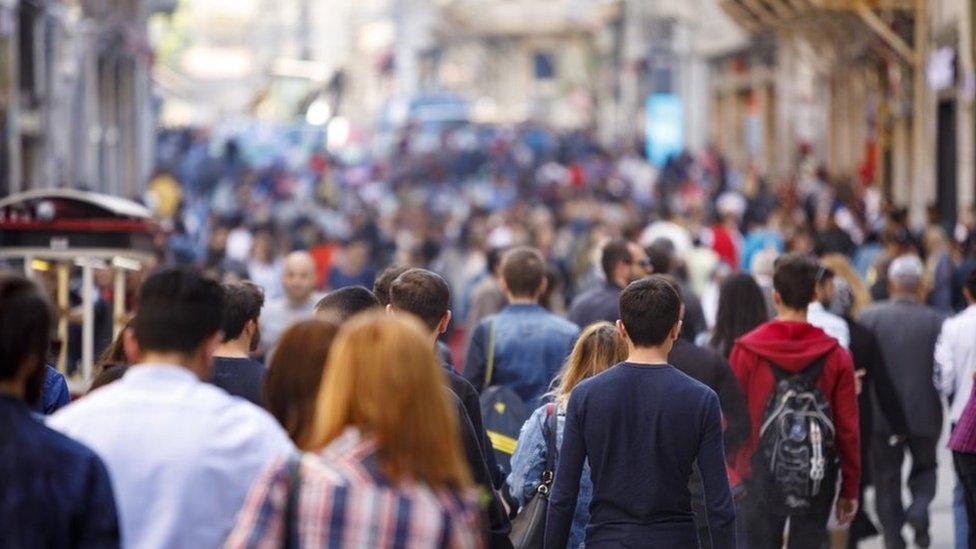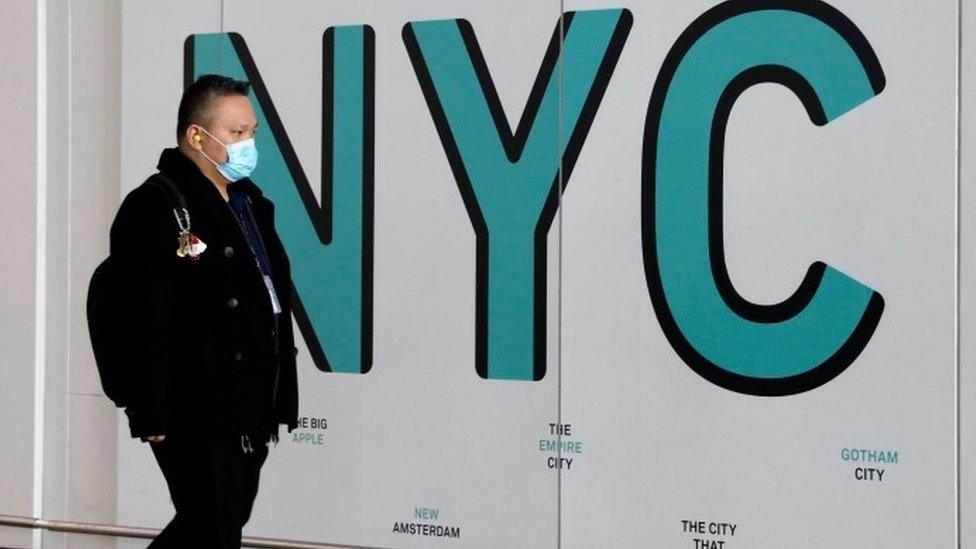Covid-19 pandemic is over in the US - Joe Biden
- Published

Joe Biden at the White House on 15 September
President Joe Biden has declared the pandemic over in the US, even as the number of Americans who have died from Covid continues to rise.
"We're still doing a lot of work on it. But the pandemic is over," said Mr Biden in a television interview.
Statistics show that over 400 Americans on average are dying from the virus each day.
The head of the World Health Organization (WHO) said last week that the end of the pandemic was "in sight".
In an interview with CBS programme 60 Minutes aired on Sunday, Mr Biden said the situation was rapidly improving, even though a lot of work was being done to control the virus.
The interview - aired over the weekend - was partly filmed on the floor of the Detroit Auto Show, where the president gestured towards the crowds.
"If you notice, no-one's wearing masks," he said. "Everybody seems to be in pretty good shape... I think it's changing."
But administration officials told US media on Monday that the comments did not signal a change in policy and there were no plans to lift the ongoing Covid-19 public health emergency.
In August, US officials extended the public health emergency, which has been in place since January 2020, through to 13 October.
To date, more than one million Americans have died from Covid. The US Centers for Disease Control and Prevention - the CDC - says that Covid was the underlying cause in at least 90% of those deaths. In the remaining deaths, it was a contributing cause.
Data from Johns Hopkins University shows that the seven-day average of deaths currently stands at over 400, with more than 3,000 dead in the past week alone.
In January 2021, by comparison, more than 23,000 people were reported dead from the virus over a single week-long span. About 65% of the total US population is considered fully vaccinated.
Certain federal vaccine mandates remain in place in the US - including on healthcare workers, military personnel and some non-US citizens entering the country by plane.
Top Republicans criticised the president's remarks, with former Secretary of State Mike Pompeo tweeting: "Biden now says 'the pandemic is over' as he's kicking tens of thousands of healthy soldiers out of the military with his COVID vaccine mandate."
Public health officials have expressed cautious optimism in recent weeks that the world is edging towards a pandemic recovery, but continue to urge people to be careful.
On Monday, Dr Anthony Fauci, head of the National Institute of Allergy and Infectious Diseases, acknowledged the situation had improved.
But in comments made at a Washington DC think tank, he said the daily death rate remained "unacceptably high".
"We are not where we need to be if we're going to be able to 'live with the virus'," Dr Fauci said.
He also cautioned that new Covid-19 variants could still emerge, especially in the coming winter months.
The US recently authorised new vaccines that match the version of the Omicron variant currently dominant in the country, with federal health officials asking Americans to keep their jabs up-to-date.
Last week, WHO Director-General Tedros Adhanom Ghebreyesus said that the world has "never been in a better position to end the pandemic".
"We are not there yet," he said. "But the end is in sight."
Covid-19 also continues to have a significant impact on the US economy, with the National Bureau of Economic Research reporting last week that Covid-related disease had slashed the US workforce by about 500,000 people.
Mr Biden said he believes that the pandemic has had a "profound" impact on the psyche of Americans.
"That has changed everything... people's attitudes about themselves, their families, about the state of the nation, about the state of their communities," he said.
"It's been a very difficult time. Very difficult."
More than 6.5 million people have died since the beginning of the pandemic around the world. The US has had the highest death toll, followed by India and Brazil.
Related topics
- Published22 August 2022

- Published12 September 2022

- Published7 September 2022
